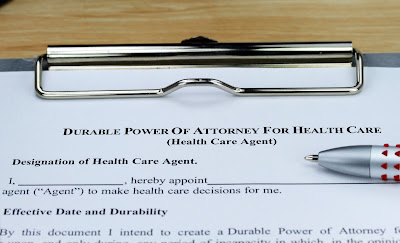An Uncontested Divorce is a legal procedure in which the spouses
mutually agree on certain terms and conditions, in order to adjourn
their marriage. An uncontested divorce can be executed successfully if
the spouses comply to a shared agreement in the matters related to the
property partition, financial matters, any kind of support activities
related to their children, and other litigious affairs.
A major benefit of consenting with an uncontested divorce is that unlike contested divorce, it doesn't have to deal with emotional and financial issues, is relatively inexpensive and quick, since most of the times the spouses may not find any need of an attorney or a court case for the divorce, if they are in good terms with each other, and plan to go with proper understanding. This is quite helpful essentially when the couple has much less assets to deal with and no children.
There are many "Do it yourself" forms available at concerned regulatory agencies, which can assist you in going ahead with the uncontested divorce activity yourself, without the need of any outside legal authority or attorney.But, in case of the issues for child support or the partition of community property, one must follow up with attorney related to divorce, before they proceed with signing off any legal documents.
Divorce is a quite tedious and sometimes displeasing procedure.Despite having mutual consent on many of the terms, there still exist loads of matters that need to be taken care of, before ending up the marriage. The couple needs to be capable enough to distinguish these issues and resolve them as soon as they can. To decide whether it is appropriate for a couple to go ahead with an uncontested divorce rather than a contested one, there are certain points that can be used as reference:
1) Are both the spouses agreeing to go for a divorce, or one of them still wants to re-establish the relationship?
2) Are all the financial issues, modes of income and other related assets properly understood by both the spouses, so that they can divide and decide on them accordingly?
3) In case, there are children, are all the issues regarding the child care and support,custody, periodic meetings and visits decided yet?
4) Are all the issues getting settled with mutual consent, and are devoid of any hard feelings?
5) Are both the partners in accord with the honesty or authenticity of the other partner's notions,regarding the resolution of these issues?
If either of the above mentioned questions, has an answer as "yes", then it is appropriate to go for an uncontested divorce.
Uncontested divorce can be carried on easily and without much hassles, but they can be derogatory to certain individuals in case the people involved in the divorce, do not know much about their appropriate rights with respect to the alimony amount, partition of pension, earnings from real estate, and other modes of income.
Hence, it is always advisable to consult an attorney or other legal authorities related to divorce, even while going on with the uncontested divorce, where you and your partner mutually agree to all the terms.
A major benefit of consenting with an uncontested divorce is that unlike contested divorce, it doesn't have to deal with emotional and financial issues, is relatively inexpensive and quick, since most of the times the spouses may not find any need of an attorney or a court case for the divorce, if they are in good terms with each other, and plan to go with proper understanding. This is quite helpful essentially when the couple has much less assets to deal with and no children.
There are many "Do it yourself" forms available at concerned regulatory agencies, which can assist you in going ahead with the uncontested divorce activity yourself, without the need of any outside legal authority or attorney.But, in case of the issues for child support or the partition of community property, one must follow up with attorney related to divorce, before they proceed with signing off any legal documents.
Divorce is a quite tedious and sometimes displeasing procedure.Despite having mutual consent on many of the terms, there still exist loads of matters that need to be taken care of, before ending up the marriage. The couple needs to be capable enough to distinguish these issues and resolve them as soon as they can. To decide whether it is appropriate for a couple to go ahead with an uncontested divorce rather than a contested one, there are certain points that can be used as reference:
1) Are both the spouses agreeing to go for a divorce, or one of them still wants to re-establish the relationship?
2) Are all the financial issues, modes of income and other related assets properly understood by both the spouses, so that they can divide and decide on them accordingly?
3) In case, there are children, are all the issues regarding the child care and support,custody, periodic meetings and visits decided yet?
4) Are all the issues getting settled with mutual consent, and are devoid of any hard feelings?
5) Are both the partners in accord with the honesty or authenticity of the other partner's notions,regarding the resolution of these issues?
If either of the above mentioned questions, has an answer as "yes", then it is appropriate to go for an uncontested divorce.
Uncontested divorce can be carried on easily and without much hassles, but they can be derogatory to certain individuals in case the people involved in the divorce, do not know much about their appropriate rights with respect to the alimony amount, partition of pension, earnings from real estate, and other modes of income.
Hence, it is always advisable to consult an attorney or other legal authorities related to divorce, even while going on with the uncontested divorce, where you and your partner mutually agree to all the terms.
Article Source: http://EzineArticles.com/?expert=Camy_Divine






















